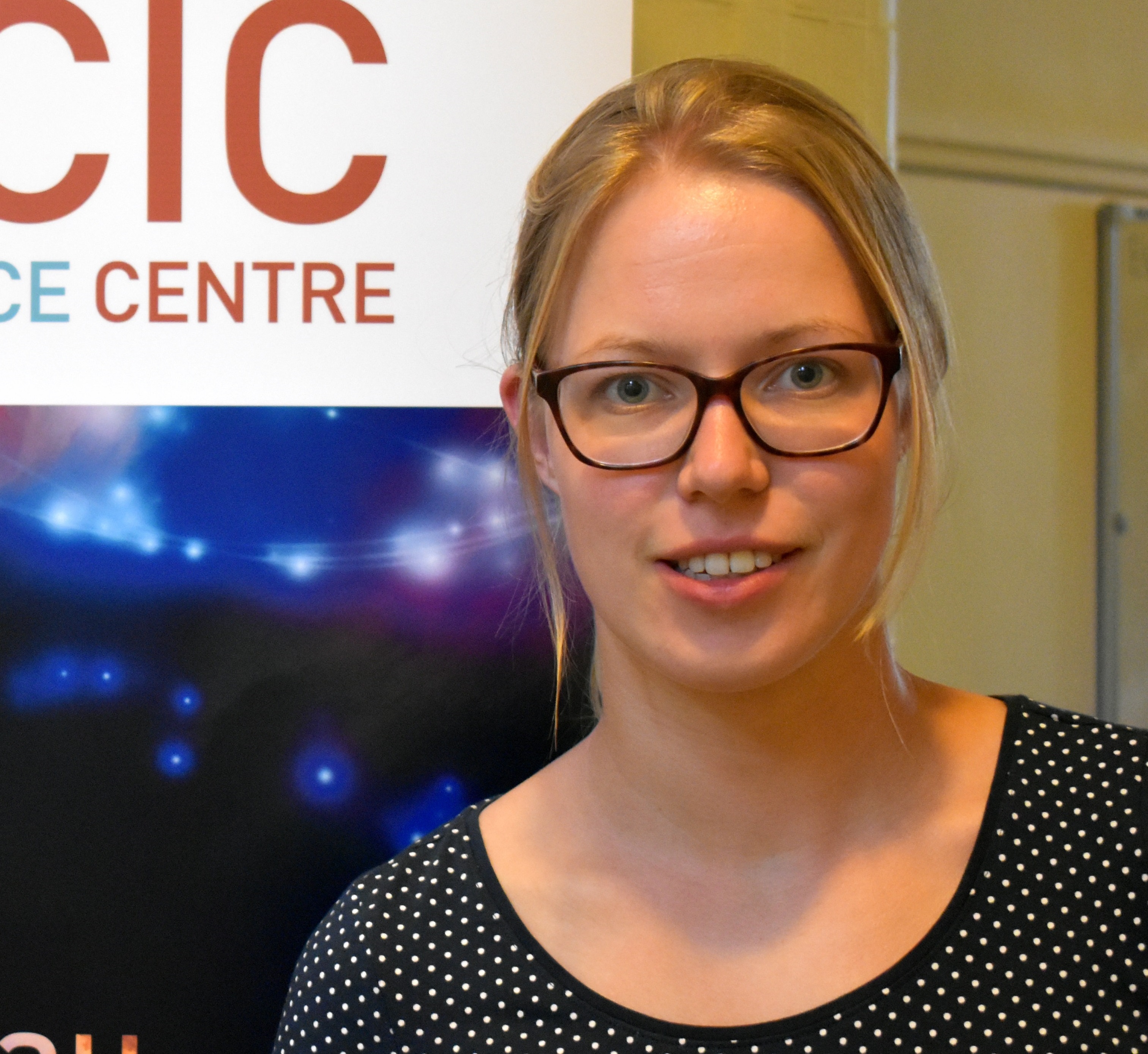 Rianne Conijn recently arrived at CIC from the University of Tilburg in the Netherlands. She follows Bikalpa Neupane as the second PhD student to win an Australian Government Endeavour Scholarship, spending 5 months contributing her expertise to CIC’s work, and learning from the team here.
Rianne Conijn recently arrived at CIC from the University of Tilburg in the Netherlands. She follows Bikalpa Neupane as the second PhD student to win an Australian Government Endeavour Scholarship, spending 5 months contributing her expertise to CIC’s work, and learning from the team here.
Rianne, welcome to CIC! Can you tell us a bit about yourself – where did you grow up, and how did you get interested in computing?
Hi, my name is Rianne Conijn. I grew up in a small town north of Amsterdam, the Netherlands. Already at middle school, I discovered that I was interested in two completely distinct fields: psychology and mathematics/logic. Luckily, I found a Bachelor’s program at Eindhoven University of Technology, which combined these two interests: Innovation Sciences. In this program, I have learned how to successfully design and implement technological innovations, by examining both the possibilities of the technology (computer science), as well as the human factors and limitations (psychology, sociology, economy, and law). I further advanced these skills in my two-years Master’s program Human-Technology Interaction. During my Master’s, I did a research internship in the Department of Informatics at the University of California, Irvine, where I got introduced to the emerging field of data science, and how data science techniques could be used in social science research. I used these skills in my master thesis to predict student performance using data from learning management systems, and later on in my work as junior researcher at the Eindhoven School of Education. There I analysed patterns in students’ behaviour in MOOCs and in virtual internships for preservice teachers. Currently, I’m a PhD candidate at Tilburg University, Netherlands, where I look at patterns in students’ writing.
What kind of research group are you in at Tilburg?
At Tilburg University, I am in the Department of Cognitive Science and Artificial Intelligence within the School of Humanities and Digital Sciences. The department only started this January, out of the Department of Communication and Information Science. The department consists of around 40 researchers, who are involved in the areas of cognitive science and artificial intelligence, including affective computing, computational (psycho)linguistics, data science, educational technologies, (serious) games, human-robot interaction, image analytics, machine learning, modelling, social analytics, and virtual & mixed reality. The department is highly interdisciplinary, with researchers from different backgrounds, and a lot of collaborations with companies and other departments within and outside the university. The broad mix of topics and researchers often spark me with new ideas and collaborations, making it a really good environment for the start of my academic career.
Is there a Big Question that fascinates you?
The Big Question for me is: how can we use data science to advance research in social sciences? I’m really fascinated by the possibilities data science could bring to research in social sciences, but also highly aware that the two disciplines are really far apart. By combining my knowledge on both social sciences and data science, I aim to bring these fields a bit closer. I feel that focusing on the fairness, accountability, confidentiality, and transparency (FACT) in data science is of vital importance here. In other words, I aim to create models which are non-discriminative, accurate, ensuring privacy, and interpretable.
Can you summarise the goals of your PhD for us?
In my PhD I am analysing students’ writing processes. As a main tool, I am using keystroke logging, where we collect the timestamp of every key a student pressed during a writing task. With keystroke logging, we can obtain a fine-grained trace of students’ writing behaviour. I try to relate these data and data on draft revisions to higher-level writing processes, such as planning and revising. Using pattern mining and sequential analyses, I analyse how these writing processes evolve over the time of a writing task. In turn, I relate this to the process of learning to write, to be able to use these analyses to provide feedback to students on how to improve their texts and assist teachers in improving writing instruction.
What are you hoping to do in your time at UTS?
During my time at UTS, I hope to learn how the analyses on writing can be used to actually improve learning and teaching. Although a lot of information can be gained from the analyses on the keystroke data and the drafts, this will not necessarily lead to actionable feedback. Building on UTS:CIC’s knowledge on the process of learning to write, I will try to identify what types of information would be most useful to extract from the data. In addition, I will try to determine how we can use this information to provide meaningful feedback to students on how to improve their texts.
What are your first impressions of Sydney, and CIC?
It’s sunny! I really love the weather and the really diverse nature. There are so many beautiful places to hike! The people in Sydney are really friendly and open. The same I encountered when I started here at CIC. Everyone is really helpful and encouraging to make sure I get the most out of my time here, by immediately involving me in the projects here and introducing me to new researchers. I’m sure this will definitely be a really inspiring time for my PhD and my future career. I am really happy I got the Endeavour Research Scholarship and I am really grateful to Simon Buckingham Shum, Simon Knight, and Roberto Martinez-Maldonado for hosting me here!
How can people get in touch with you to learn more?
Regular updates on my research and contact details can be found at my website: rianneconijn.com.